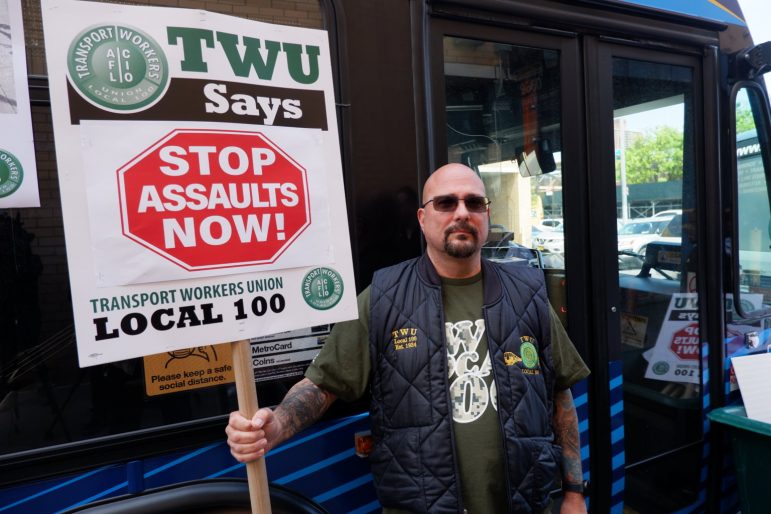“I’m going to cut your throat,” said the man wielding a knife and targeting a SEAT bus driver in New London who’d stepped off her vehicle for a quick break. The female driver jumped back on the bus, closed the doors and called the cops, who, minutes later, arrested the would-be attacker.
This incident in late December is just one of many in Connecticut, New York City and nationwide in what is an increasing incidence of violence aimed at our mass transit workers. On Metro-North alone they were targets of 16 assaults and 14 harassments last year.
Since 2019, the overall rate of violent crimes — murder, rape, felony assault and robbery — has more than doubled in the New York City subways even as ridership has decreased. And increasingly it’s not just passengers but the people who run our trains, subways and buses who are the targets.
In NYC, anyone convicted of assaulting a transit worker faces up to seven years in jail — assuming the perp is caught and the DA prosecutes. In Connecticut such attacks are a Class C Felony, the same as assaulting a police officer.
Not every attack or threat is potentially lethal. Sometimes transit workers have had coffee tossed at the them or they’re spat at. Whatever anger commuters may have about delays should not be taken out on the front-line workers who are doing their best under difficult circumstances.

Photo from Transit Workers Union
Transit Workers Union protestor against violence on mass transit.
According to police many of these attacks in Connecticut seem to be perpetrated by homeless passengers riding the bus system all day taking advantage of the free fare program, which expires at the end of March. Lacking sufficient shelters and day-facilities, it seems, they prefer our buses to camping out in other public places.
Many of them are suffering from mental health issues. They need our governments’ help, not a change of venue. Keeping them out of sight and off our streets by having them ride our buses is not the answer.
Their presence on our buses and subways frightens other passengers, further discouraging badly needed ridership. And transit workers who must cope with them are not social workers, so it’s not fair to ask them to intercede. The fear of confrontations with angry or unstable passengers is one of the reasons MTA did so little to enforce the federal face-mask rules during the pandemic.
The free fare program on Connecticut buses has been immensely helpful to poor people struggling to save money. They deserve those breaks — but not when the unintended consequences of such a pilot program leads to violence.
Mass transit is replete with security cameras and, in the case of vulnerable bus drivers, safety shields around their driving work area. So the people doing these attacks are usually caught — but only after the damage, physical and psychological, has been inflicted.
The answer is not to put armed guards on every bus and train. That’s impractical. But whether attackers are mentally unstable or just drunk, whether their targets are transit workers or random passengers, something must be done to keep such people off of mass transit.
____________________

Contributed photo
Jim Cameron
Jim Cameron has been a Darien resident for more than 25 years. He is the founder of the Commuter Action Group, sits on the Merritt Parkway Conservancy board and also serves on the Darien RTM and as program director for Darien TV79. You can reach him at CommuterActionGroup@gmail.com.

